8. Birdman or (The Unexpected Virtue of Ignorance) (2014)
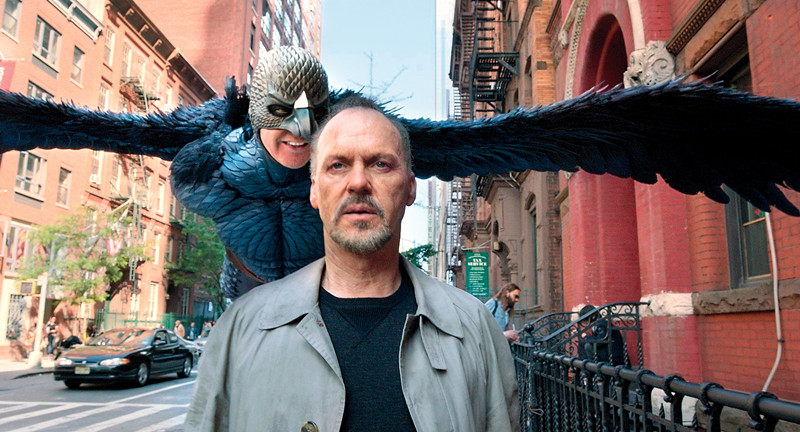
Birdman is a recent winner that exposes a great sign of hope for future Best Picture nominees and winners. This feature is the most creative winner in many years. It is an exceptional depiction of its main character and actor (Riggan Thomson played by Michael Keaton) in virtually every way possible.
The premise is about a former megastar whose life got consumed by a franchise who wishes to restore their glory through a rejuvenation that has little to no interest behind it. Now, was that the description of Thomson or Keaton?
Thomson’s dream is to be on the stage, and thus the film compromises its abilities by being one single take (invisibly, of course), centred around few characters like a broadway play, and abandoning all sorts of movie advantages. Thomson’s urges to break back into a blockbuster hero appear in the form of CGI hallucinations, monologued tantrums that require an additional character (to break the illusion of a stage production) and the requirement to resolve in a Hollywood fashion.
Its climax is ambiguous (is it all an imagined afterthought or was it all real?), and even the title of the film is indecisive about who it supports (the Thomson of then or now). Keaton’s career is back on track, and Alejandro G. Iñárritu has been recognized more than he ever has before.
7. The Artist (2011)
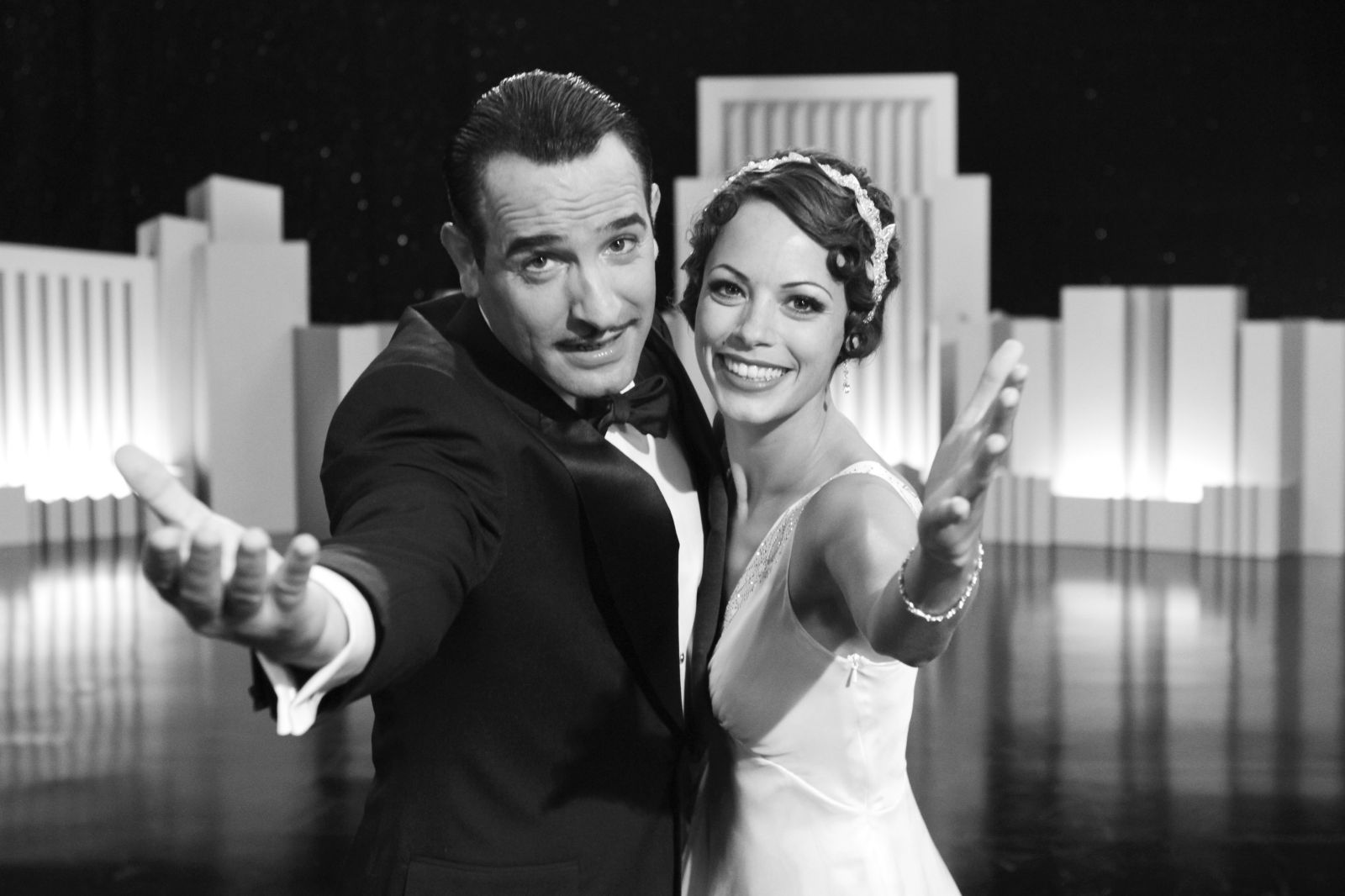
The first silent Best Picture winner since Wings. The first completely black and white winner since The Apartment. The Artist seemed like a gimmick to some, but there is many methods to the madness that Michel Hazanavicius brought us. After his OSS series, The Artist was a radical departure from anything Hazanavicius (or many other directors) have yet attempted.
The Artist is a silent film that is stubborn enough to fight off being a sound film. It mimics the arrogance of its main star, played by Jean Dujardin. Both the film and the character are hesitant to change through the ever-evolving film industry, and their refusals tell a part of the story.
Both a tribute and a critique on the silent era, The Artist dazzles with its super tight script structure; not many lines are featured in title cards, but they all highly matter. Like Birdman, The Artist is a metaphysical representation of Hollywood and how its stars get treated; it’s no wonder that this film won the hearts of many when it was released.
You do not need to know much about film history to adore this film, but having some insight will enrich it beyond your wildest expectations. The Artist was a silent film released nearly a hundred years after its death, but it had more to say about film than any other film that year.
6. The Departed (2006)
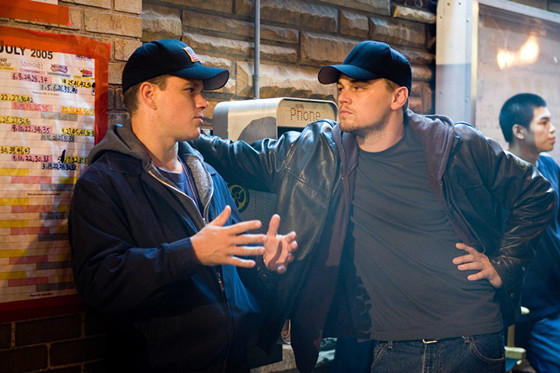
Finally, Martin Scorsese won Best Picture and Director, after continuous snubs in the past. The Departed may not be one of his top films, but that’s because this man made classics like Taxi Driver and Raging Bull. The Departed is a clever tale of rats lost within the sewer systems of Boston’s different industries.
It’s not just the criminals and the cops that share classified information, as even the psychiatrist reneges on her promises. Scorsese is obsessed with putting in as many minor details as he possibly can; Exile on Main St. isn’t just a great album, after all. All of these attentions to the finer moments work their way up to causing suspicion of every character throughout the film.
The argument that is often attached to this film is whether or not it is better than Infernal Affairs. Scorsese is the ultimate cinema fanatic, and his praise for the original film came in the form of this remake. You can prefer either film, but The Departed is still strong on its own merits.
The star-studded cast is all at the top of their game, enough so that you get distracted during their cat-and-mouse chases. You get so sidetracked that you will even be tricked when the biggest surprises are left for the end. The Departed is the layer on top of layer of lies present, and the shovel that digs through them to reach the depths of where ones body will finally be laid to rest.
5. No Country for Old Men (2007)
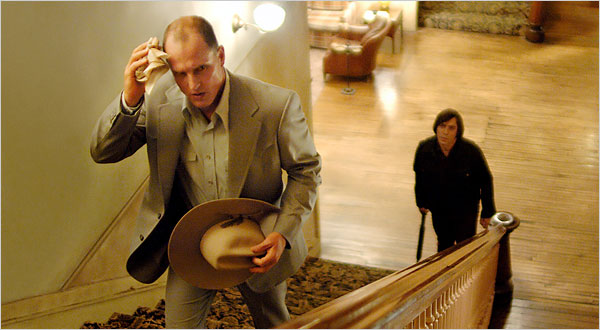
After many years and many films, the Coen Brothers finally received their win for Best Picture with what could be one of their most serious films ever. No Country for Old Men does have its share of typical Coen Brothers humour, but it also contains tomes of southern gothic wisdom in the forms of bitter regrets and eerie warnings.
Anton Chigurh has been the greatest visual representation of death since Bengt Ekerot’s figure dressed in black haunted audiences in The Seventh Seal. Chigurh stops for no one, always claims his victims no matter what they (or their coins) say. Crime and death will never halt, no matter how you live your life. This is a dilemma Sheriff Bell is incapable of dealing with, as he even clings onto dreams until he wakes up and they are over.
A chase between a thief and a serial killer ends up becoming a tale of the sprawling crime in America. All of the action is perfectly timed (especially that part where Llewelyn has to ready his gun to ward off an attack dog), despite the fact that these situations usually happen hastily out of fear. Any decision can be too carefully thought out, because a waste of time means a closer dance on death’s door.
No one can dedicate their lives to ridding the world of evil, because it will never disappear and the “hero” will die with their wishes unfulfilled. These are some incredible philosophies by Cormac McCarthy, and the Coen Brothers have dedicated every second of this film to fulfilling the literary master’s cautions to the world.
4. Spotlight (2015)

Not since the ghastly The Greatest Show on Earth has a Best Picture winner gone on to win only one other award that year. Spotlight won for Best Original Screenplay, because this script was so strong that it allowed the rest of the film to act casually and naturally.
The analysis on the developing case of molestation within the Catholic systems of Boston was a loud enough element of Spotlight that every other aspect was assured its opportunity to breath easily. The acting is nuanced and rarely over-the-top, the music is far from dramatic, and we as an audience are not forced to feel any of our reactions throughout our viewings.
Tom McCarthy’s retelling of the 2001 study is full of integrity and content, as if it were the news piece that ran back in 2002. The journalists on screen are highly believable and driven by their missions. The city of Boston is a character who slowly uncovers plot elements in the areas the main characters thought they knew best (including their own neighbourhoods).
There is only one “heroic speech” moment (delivered by Mark Ruffalo), but the rest of the film lets its source do most of the talking. This is an example of a story that begged to be told by film, if so much of Spotlight got by simply by talking and not by yelling. It is refreshing to see that a film like Spotlight, that is so collected and contained, can win Best Picture when many other films try to shove their ways to the front of the pack.
3. The Hurt Locker (2009)
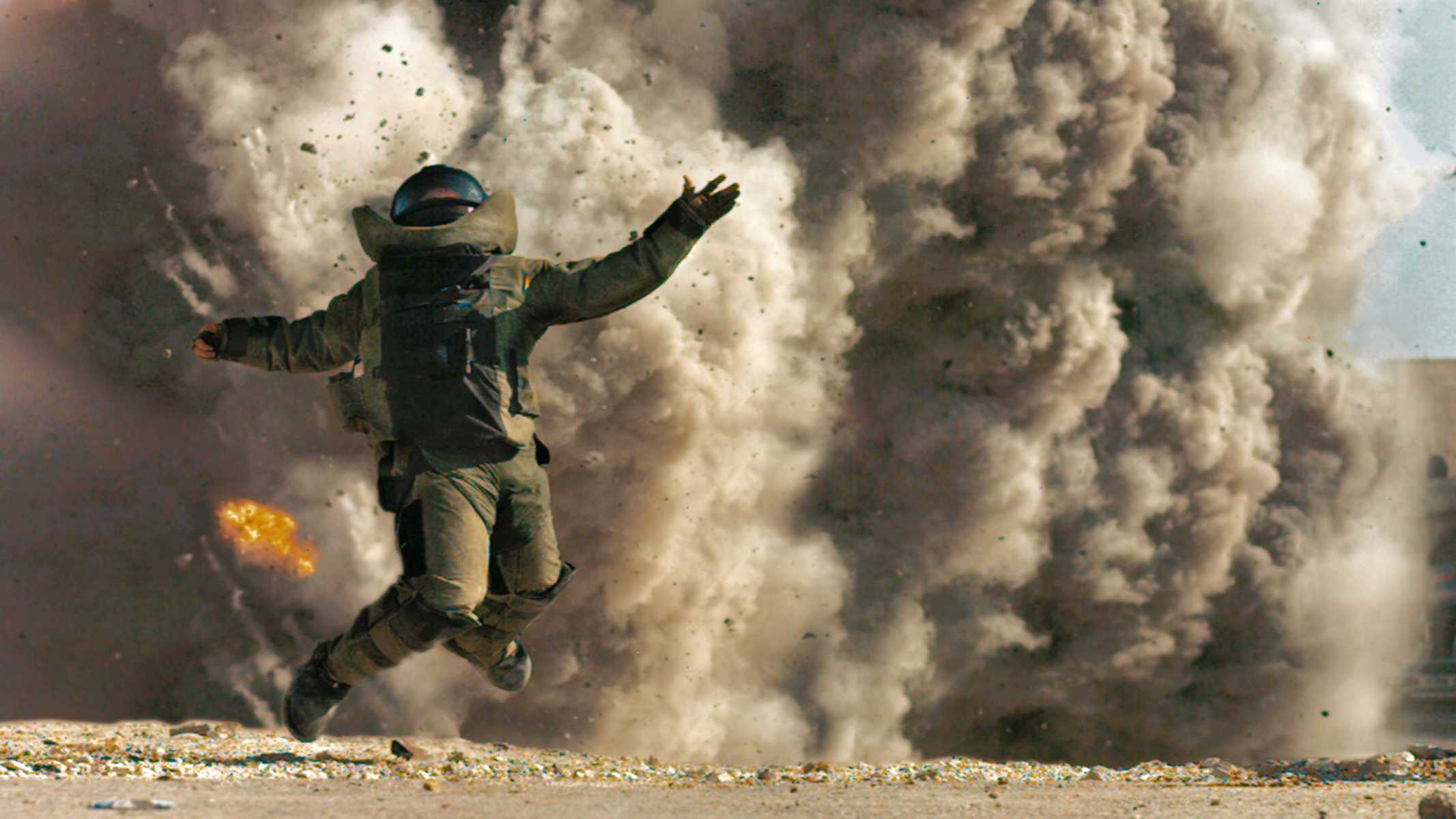
Kathryn Bigelow’s first breakthrough within her renaissance period (actually, has she ever made films this good before?) is a cinematic time bomb that slowly winds its way down. Sergeant James tests his luck with many of the explosives he has to deal with, because he has done this many times before. He also has a sick addiction, where he not only loves to put his life on the line but he likes to test the mortality of others as well. He loves to be the hero, and you know that this win streak can only last for so long.
The Hurt Locker has a very small plot set up: The characters have to make it until the end of their rotation. That’s the only main goal here, and yet every new scene is as nerve-wracking as the previous one (if not more).
Trailers often have a problem with giving too much away. The Hurt Locker’s promotional trailer seemed like it gave away the intense ending; it only showed the third scene. This film is a sauna that has been turned up too high, as everyone (including yourself) will feel the heat the entire time. The Hurt Locker is also the lowest grossing Best Picture winner thus far, which is a significant pin point in how the criteria to win has changed. Smaller films can cut it, now.
The Hurt Locker beat Avatar (which makes perfect sense), and it was the latest battle between cinema as a story telling medium versus cinema as a series of attractions. The Hurt Locker uses very little to speak volumes, and it is one of the most anxious movie rides to come out recently.
2. The Lord of the Rings: The Return of the King (2003)
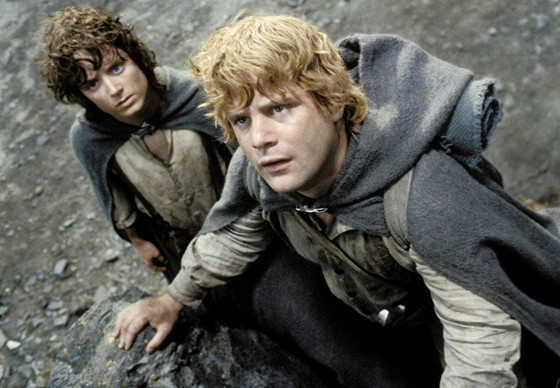
This is a second sequel in a trilogy. This is a fantasy film. There are elves, dwarves, orcs, and ents. This not only won Best Picture, it tied the record for the most wins in Academy history (with Ben-Hur and Titanic). The Return of the King, in order to pull all of this off, had to be sensational. If anything,
The Return of the King is borderline indescribable. How well has any other film (or series) brought together casual movie fans, hardcore cinephiles, academic viewers, pop culture enthusiasts and fans of other forms of entertainment (including video games and literature) in the history of cinema? The Return of the King wasn’t just the unity of all of the living species within Tolkien’s universe, it was the bonding of anyone who enjoyed entertainment.
The Return of the King simply does not get anything wrong. Its production and technical achievements are still unbelievable fourteen years later. Its massive cast is all terrific with no weak players in the mix. The cinematography and music are as majestic as you could imagine while you read the original novels.
The ending gets occasionally criticized for its length, but how could anyone realistically tie up all of the threads of a nine hour trilogy realistically (more if you include the extended editions)? Peter Jackson loved this series enough to put every minuscule detail into complete consideration; hell, they were still filming extra scenes for the extended cuts when the film won its Oscars. All of its wins were, possibly, for the entire series, which, with all things considered, is likely the greatest cinematic trilogy of all time.
1. 12 Years a Slave (2013)
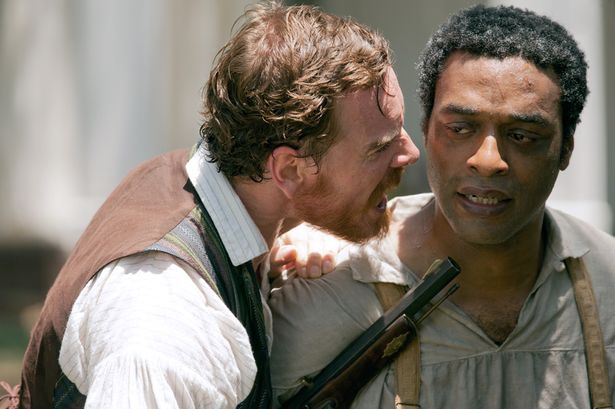
It is hard to believe that this film came out four years ago, as it still feels like yesterday that we witnessed a modern masterpiece in theatres. As the most recent film to appear in the top ten, 12 Years a Slave is a slice of perfection that took modern audiences back to a time when the kinds of classics you will find in the top five of this list came out.
This film was, indeed, an industry definer that mixed the art of Terrence Malick, the acting found on the stage, the intensity of Francis Ford Coppola and the soul of Steven Spielberg. Steve McQueen made a name for himself when that name was already occupied previously in the film industry; that is how good 12 Years a Slave is. All of its elements lined up to share an incredible story of survival, and it was a story that was essential to tell.
This movie came out during a time that it was needed the most. The citizens of society have been ready to bite off the faces of their fellow townsperson for the last couple of years, and it is a shame when we should focus on the feats we have already accomplished. 12 Years a Slave is a reminder that we can still move forwards, that there is still work to be done, and that no one should be put through hell simply because of their skin colour.
There is no fancy name for this film, it simply depicts the distresses of Solomon Northup. You witness a human live day by day, year by year, under the cracking whips and the blistering sun just to see his family once again. This is an achievement of human strength, filmmaking, acting and sacrifice, as 12 Years a Slave does its ultimate best to honour the man who went through these very turmoils for over a decade.
Rankings of other decades:
Pre-1950 Best Picture Oscar Winners Ranked From Worst To Best
1950s Best Picture Oscar Winners Ranked From Worst To Best
1960s Best Picture Oscar Winners Ranked From Worst To Best
1970s Best Picture Oscar Winners Ranked From Worst To Best
1980s Best Picture Oscar Winners Ranked From Worst To Best
1990s Best Picture Oscar Winners Ranked From Worst To Best
Author Bio: Andreas Babiolakis has a Bachelor’s degree in Cinema Studies, and is currently undergoing his Master’s in Film Preservation. He is stationed in Toronto, where he devotes every year to saving money to celebrate his favourite holiday: TIFF. Catch him @andreasbabs.